A Personal Perspective
DPC Member Nancy Nelson offers a glimpse into her past and her hope for the future.
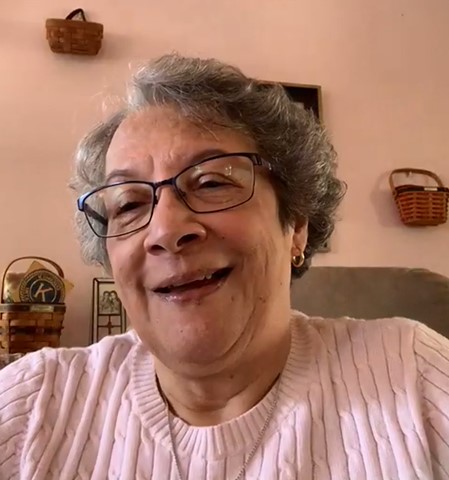
Perspective is not something easily attained or understood – especially one belonging to an individual with a life experience intrinsically dissimilar to your own.
It’s why learning about others – and their stories – has become increasingly important, especially during a time of such turmoil experienced by our country in the past year.
It’s why DPC member Nancy Nelson felt compelled to share with us her own unique perspective as an African-American woman living in Doylestown.
Nancy’s is just one of the stories DPC is highlighting during Black History Month as communities across the world attempt to reshape and refocus conversations, thoughts, and actions surrounding race and social justice.
The variety of anti-racist book discussions and topical small group gatherings hosted by our congregation over the years – as well as the educational emphasis pushed during DPC’s Week of Action last summer – should all be viewed as positive steps, according to Nancy. And while she lauds church members of all ages who have been proactive in understanding the challenges faced by all Black Americans, she feels that change is equally accelerated through one-to-one relationships.
And that doesn’t always mean a heavy, in-depth conversation.
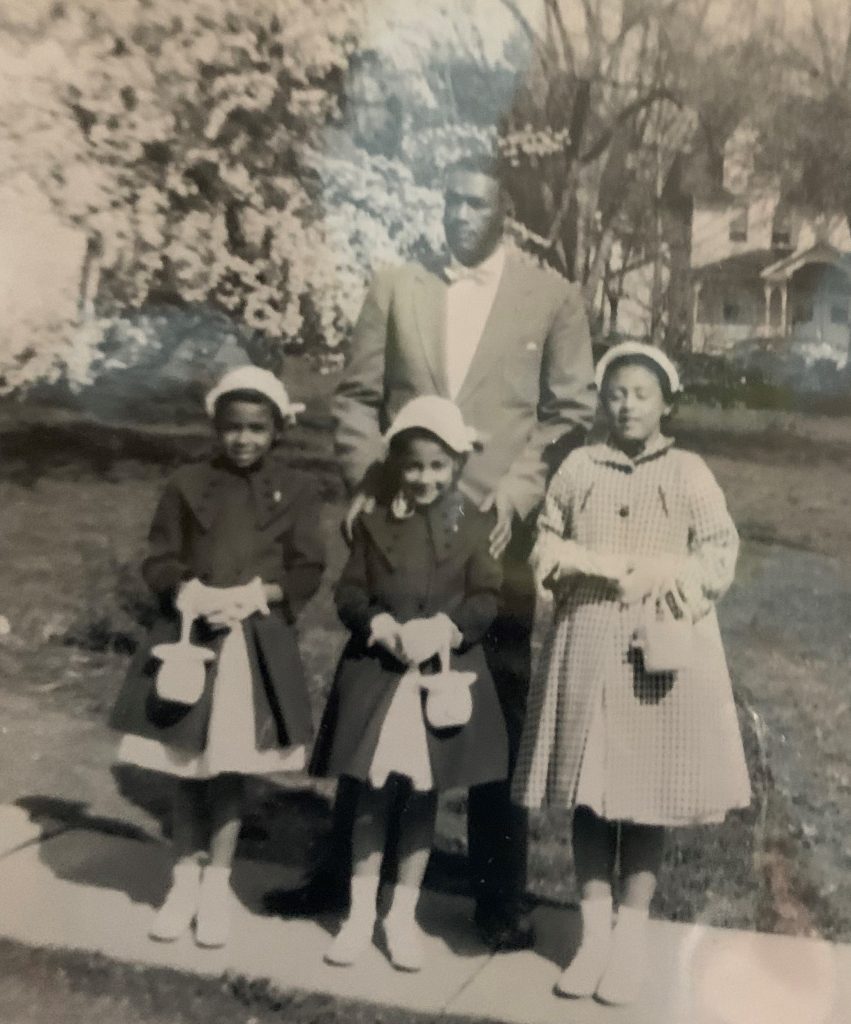
“Just be yourself around me,” she said. “Just treat me the way you would anyone else and I will do the same for you. I’ll give you the respect that you give me. Learn as much as you can and look at things from an African-American perspective…but also the experiences of Asians, Native Americans, East Indians and so on. The biggest thing you can do is learn about the (individual) person – their activities and things you’d be interested in too.”
It’s from this basis of friendship and respect which discussion of broader issues can grow organically, she added.
“Sometimes you can get information out of a book, but then sometimes you can’t.” Nancy said. “You have to just be with a person to really know them.”
Nancy’s perspective on race, she admits, may have been partially shaped by her own understanding of how both sides of her family first came to Doylestown.
The Nelsons and the Stratons, she said, sought refuge in the Central Bucks region after fleeing other parts of the state due to threats of violence rooted in racism.
Doylestown welcomed them, she said – noting that the Nelson family’s barbershop became a community hub for nearly a century after opening in 1884 at the intersection of State and Main Streets.
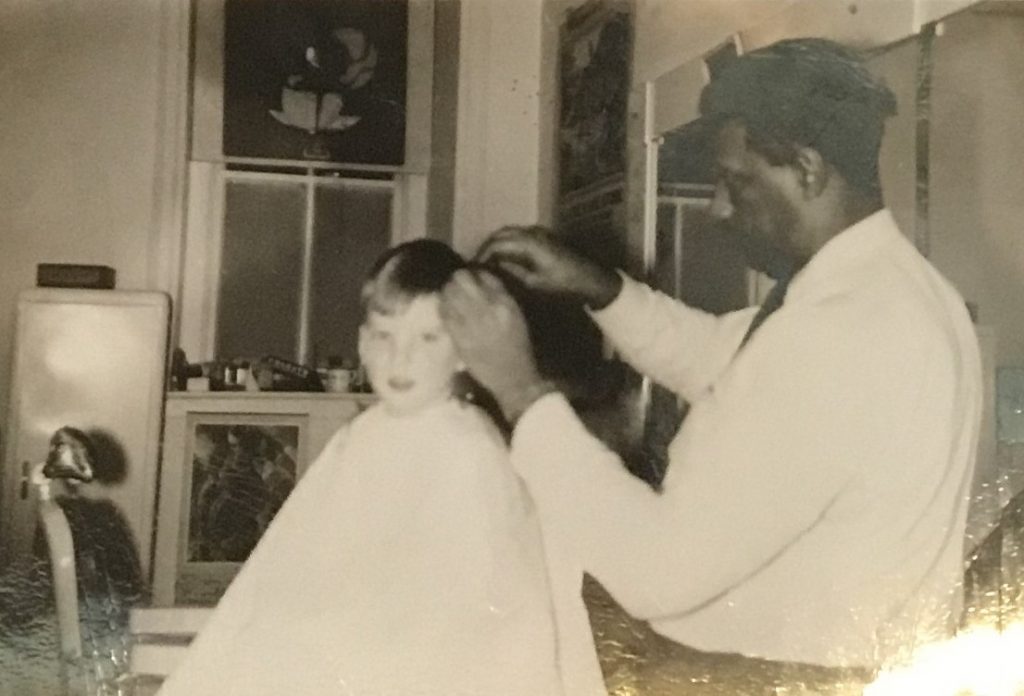
Growing up in the predominantly white area led to friendships with white children but also gave her an early glimpse of bigotry.
“Even though my parents were professionals, it wasn’t a charmed life,” she explained. “There were still some problems – like not being invited to certain parties or being called names. The N-word was used (around town).”
Nancy thinks about her parents quite often lately – especially her mother.
The onset of COVID-19 and the realities of living amidst a global pandemic has brought a renewed respect for the work of Gladys Nickleby Nelson. She was instrumental in administering the Polio vaccine from the clinic she ran in Doylestown, later establishing a nationwide network of similar facilities through her partnership with the medication’s developer Dr. Jonas Salk in the mid-1950s.
“My mom’s like a heroine,” Nancy said, beaming as she spoke of her mother’s distinction as the first African-American school nurse in the Doylestown School District. “Although she would not think of herself as that. She would think of herself as helping everyone. And that’s what she loved doing. There’s such a connection today with these clinics and everyone getting vaccinated. I look back and it’s sort of like déjà vu.”
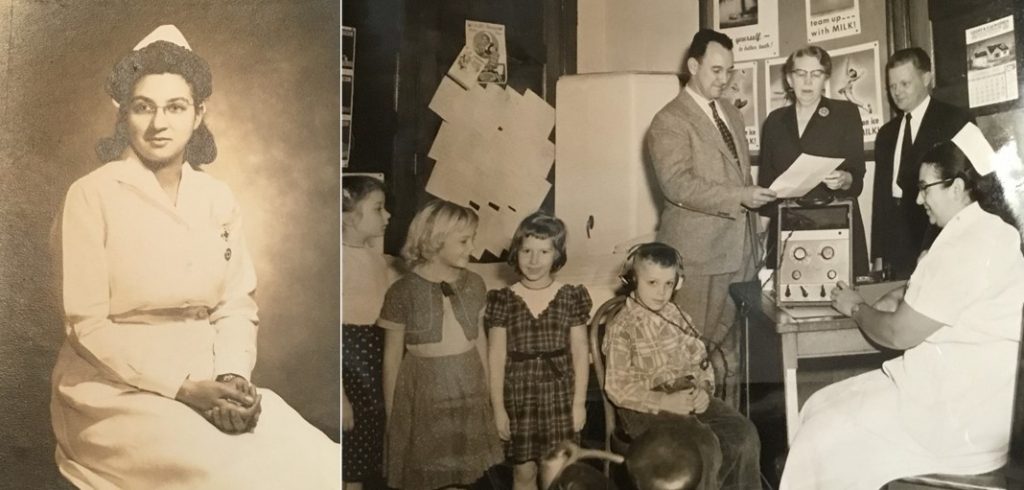
Nancy’s pride received a boost when her mother’s grave was included as a stop during a recent guided tour of the Doylestown Historic Cemetery sponsored by DPC’s Senior Adult Ministry Committee – a group in which Nancy is active.
This experience is one reason she is happy to see DPC research and share the stories of the African-Americans buried in the church’s own historic graveyard.
While DPC continues to engage members in important, sometimes difficult, conversations regarding race, Nelson says our congregation’s focus on relationships is a key first step toward shifting perspective.
She’s felt this feeling of family emanating from within these walls and beyond since she first became a member in 1977.
She and her sister, Nannette Benson-Nicol, wanted to raise her niece Nancy Benson-Nicol, in family-oriented church “and DPC fit the bill.”
Their mother followed the sisters to DPC and joined a few months later.
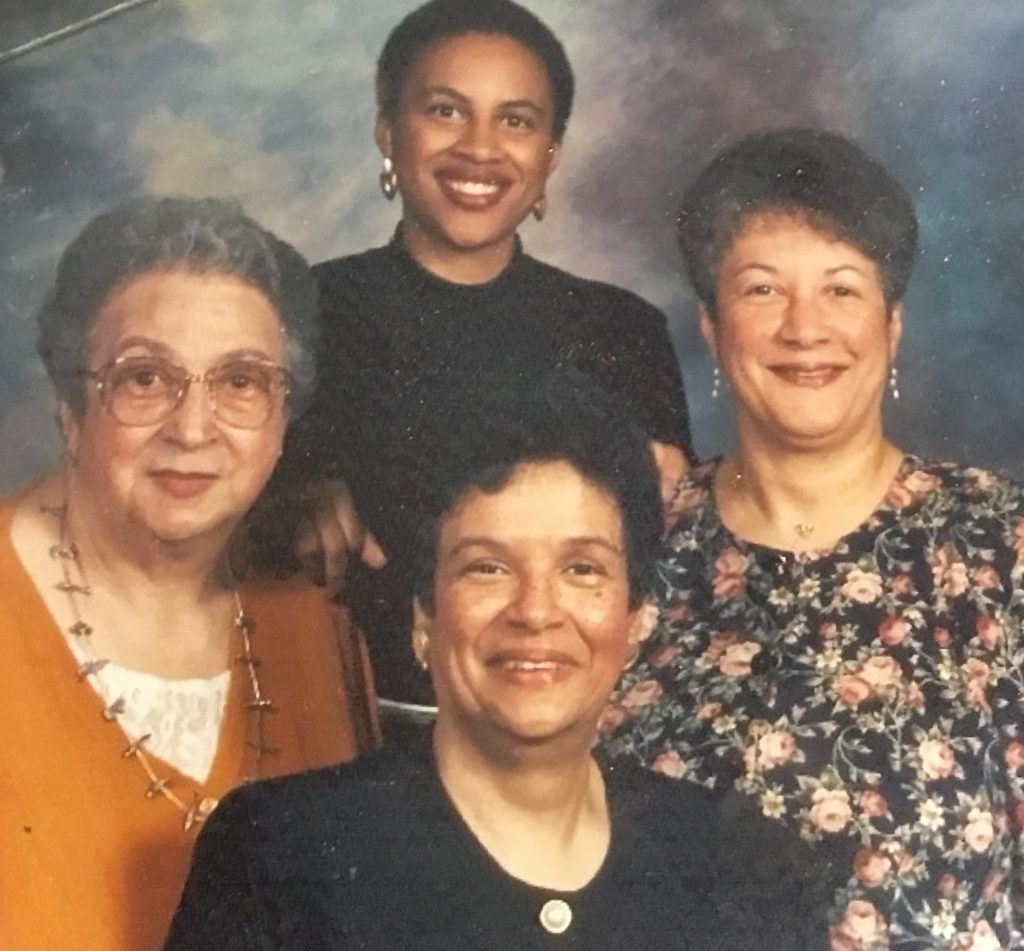
“She loved being at DPC. We all did,” Nancy reflected. “She was a Deacon and she played hand bells, which she really loved. We didn’t feel like outsiders. DPC has a way of blending everyone together and making everyone a part of the family.”
Nancy Benson-Nicol eventually graduated from Swarthmore College and later Harvard Divinity School before being ordained at DPC. After leaving the area, she served in congregational ministry for a time and now works for the Austin Presbyterian Theological Seminary in Texas.
For Nancy, the DPC family serves as a support system for her during these times of upheaval.
“Who would have ever thought we’d be at this point?” she wondered. “A pandemic, the racism, the rioting – everything is sort of combined. Everyone is scared of it getting worse. It’s affecting the African-Americans but also the white Americans. It’s like a puzzle.”
Her hope for the future? A time when many of these issues are merely remnants of a bygone way of thinking.
“But we have to learn about history in order to go further,” she added.